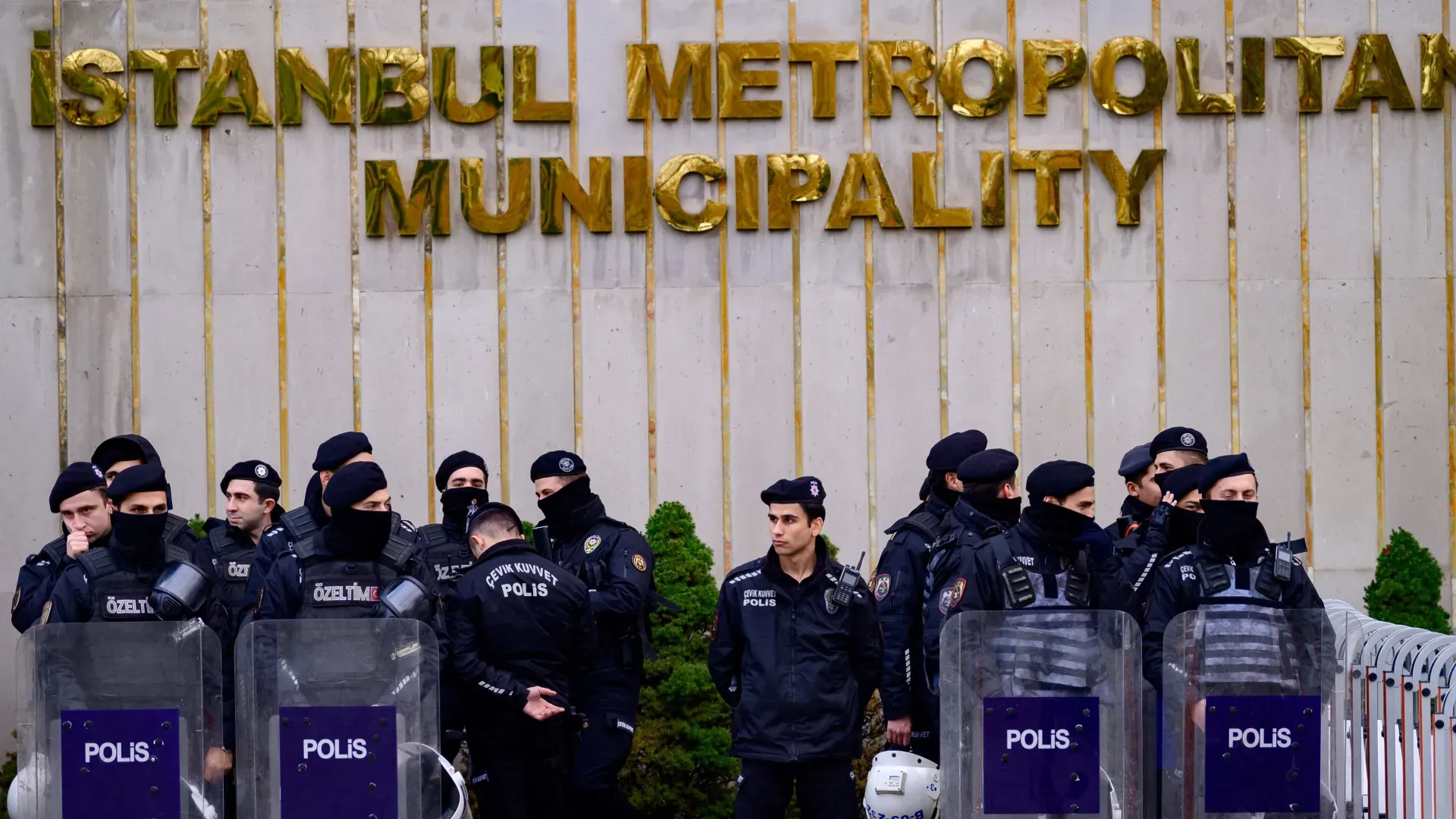Large protests will probably occur frequently in major cities across Turkiye in the coming months.
This assessment was issued to clients of Dragonfly’s Security Intelligence & Analysis Service (SIAS) on 12 January 2023.
- The moderate risk of civil unrest is likely to be heightened around the general election in June
- Established police tactics mean even small protests in the coming months are highly likely to result in violence and disruptions
- A tight elections outcome together with allegations of electoral fraud would be very likely to prompt larger protests in major cities
Politically and economically sensitive issues are converging in the run-up to parliamentary and presidential elections scheduled in June, including inflation, allegations of electoral fraud and trade union rallies. Trade unions and opposition parties are likely to organise these, particularly as the economic situation shows no signs of improving.
Widespread disruption or prolonged civil unrest before the elections remains less likely than not, in our assessment. The last time Turkiye experienced such unrest was in 2013 during the Gezi Park demonstrations that lasted almost three months. Both unions and opposition parties have so far refrained from calling for large gatherings, and incidents of unrest have been infrequent, small-scale and relatively short-lived over the past several months. However, established police tactics, such as arbitrary arrests, kettling and the use of tear gas mean that even small protests are highly likely to result in localised clashes with the authorities, particularly in narrow streets in Istanbul.
Even though the government appears to be failing at addressing public grievances, a wider anti-government protest movement is highly unlikely to emerge in the coming months. Based on our analysis of data from the Armed Conflict Location & Event Data Project (ACLED), most protests in the coming months will probably be issue-specific. Opposition groups have not been calling for broader anti-government rallies. Instead, demonstrations in 2022 have mostly been union-led and over single issues such as housing and women’s rights.
Hardship protests to remain union-led
Union-led protests meanwhile are likely to continue on a near-weekly basis this year. Because Turkish law outlaws solidarity strikes, general strikes, and strikes to enforce a collective agreement, we anticipate that most union action will remain limited to the private sector and largely unauthorised, in the construction and extractive industries. These have been isolated and have largely involved individual unions contesting payments and working conditions. They typically attract no more than 100 people. But rising inflation and economic conditions – that are showing little signs of improvement – will continue to drive union and workers’ grievances throughout this year.
A general strike or widespread disruption is highly unlikely. This owes to a fragmented union landscape. Government policies in place since 2018 also restrict union activity. Turkiye is ranked among the world’s ten worst countries for workers’ bargaining rights by the International Trade Union Confederation (ITUC). The banning of strikes and arrests and prosecutions of union leaders is widespread. Several strikes in mining and construction were banned in 2022.
A coordinated campaign of anti-government or hardship protests is also unlikely before the elections. Opposition leaders have not called for large demonstrations in recent months. In our analysis, this is to avoid widespread unrest that the authorities may use as a pretext to delay the elections or hold them under a state of emergency (as was the case in 2018). Broader hardship protests were also infrequent last year, despite rising inflation and wider economic hardship.
We forecast that the government will increasingly use populist economic policies in the run-up to the vote. This includes cash payments, discounts on energy bills and reduced interest rates for mortgages. These would probably aim to appease would-be protesters, particularly those from low-income households in rural areas where the government still enjoys strong support. Several opinion polls, including ones by Al-Monitor and Premise Poll in December, show the economy as the leading concern for voters; in our analysis, the government will probably exploit this.
Outlook for election-related unrest
Larger and more disruptive political protests are likely to take place around parliamentary and presidential elections in June. This includes any irregularities in the authorities’ handling of the vote, and the arrest of opposition members or disqualification of candidates. As was the case with protests relating to the criminal conviction of Istanbul’s mayor in December 2022, these will probably consist of several thousand people gathering in central Istanbul and Ankara.
The frequency of and turnout at protests is likely to increase after the election, irrespective of the results. The losing side – whichever this is – will probably contest the outcome. In the Istanbul mayoral elections in 2019, the ruling party requested a rerun of the vote, citing irregularities. The opposition has already accused the government of electoral manipulation following the conviction of Istanbul’s mayor, a potential presidential candidate. But a very tight result amid allegations of electoral fraud would be very likely to prompt frequent protests and counter-protests of tens of thousands in major cities.
For now, we are keeping our countrywide civil unrest risk rating at moderate, including for Istanbul and Ankara. This risk is likely to increase in major cities in the next six months, as protests become more frequent. Based on precedent from recent years and mistrust of the police, protests are highly likely to turn violent and disruptive because the authorities are frequently heavy-handed in dispersing them, using tear gas. This is the case even for small and seemingly peaceful protests in narrow streets in central areas of cities and in the vicinity of government buildings.
Image: Police officers stand guard in front of the Istanbul Metropolitan Municipality during a protest in support of Mayor Ekrem Imamoglu in Istanbul on December 14, 2022. Photo by AFP via Getty Images.







